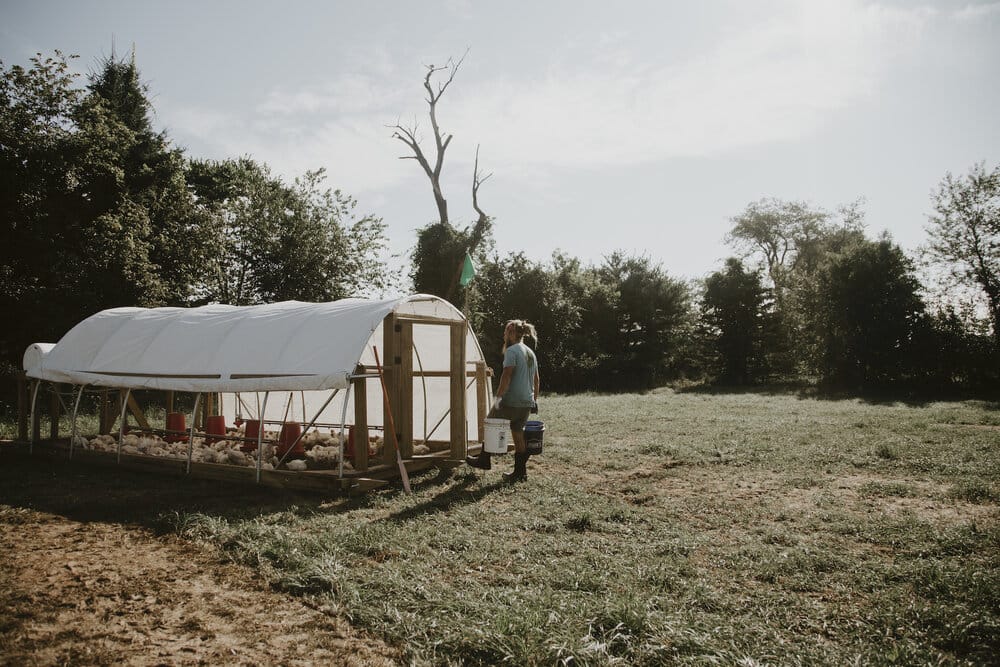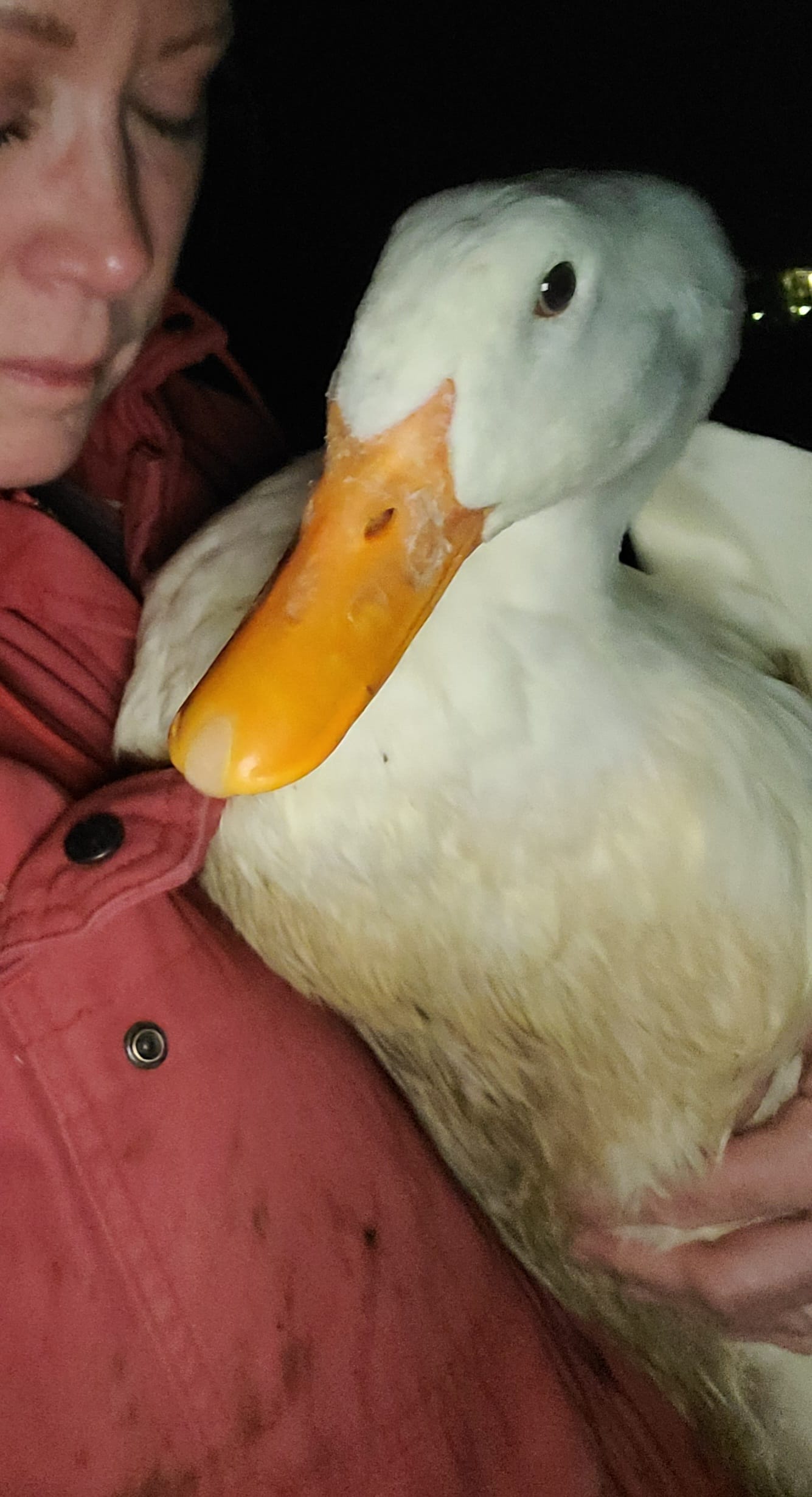Avian flu causing major concerns among New Hampshire farm owners
Concerns about avian influenza spreading from wild birds to domesticated birds has farm owners on edge.


MANCHESTER, NH – Concerns about avian influenza spreading from wild birds to domesticated birds has farm owners on edge.
In some cases, it’s high stakes; whether it’s a sanctuary farm that wants to protect its resident fowl from a state-enforced culling and the heartache that such an incident causes, or a meat-producing farm facing the loss of a whole season’s worth of business.
A chicken farm in Newfields known for its pasture-fed broilers is considering foregoing the pasture this season in order to keep their birds protected from a potential avian influenza contamination.
Each year, for the past seven years, Vernon Family Farm in Newfields has produced about 20,000 pastured chickens raised purely for their meat, known as “broilers.”
“For the first time, we’re considering not putting our spring batch on pasture,” owner Jeremiah Vernon told Manchester Ink Link Tuesday.
New Hampshire Fish and Game announced in February it first detected the Eurasian A5 strain of avian influenza in wild waterfowl, the first time in the state. About 20 mallards tested positive in Rockingham County. Fish and Game said the virus is not a significant risk to humans but does pose a “potential danger” to the poultry industry and other domestic birds.
Since then, avian flu was detected in five turkeys who died at Pumpkin Wall Farm in Derry, a sanctuary farm at a family home. As a result, the state euthanized the remaining 132 domesticated birds, including ducks, geese and chickens, living at the farm on March 18, according to owner Brendena Fleming.
While the chickens at Vernon Family Farm are already relatively protected from direct interaction with wild birds by mobile floorless coops, Vernon said, he’s still concerned that feces from wild waterfowl might fall on the pasture and infect his chickens.
And keeping them in barns all season is no easy task. Vernon said they have limited infrastructure for that, so if the birds were kept inside, they would be limited in the number of chickens they would be able to produce this year.
But the worst-case scenario would be the potential loss of nearly the whole season’s worth of chickens. At any given time, there are about 4,000 chickens on the farm, according to Vernon. If avian flu is detected in any one chicken, the state will be required to cull them all.
After that, Vernon said they would either be forced to quarantine for 150 days, which would likely be the remainder of the season, or somehow prove they have properly sanitized their facilities. How one sanitizes a facility that is essentially canvas barns with bare floors, Vernon is unsure.
He said the US Department of Agriculture offers some bailout money for situations like wholesale euthanization, but Vernon said it would be based on large-scale industrial costs, which is pennies on the pound. He said his chickens cost about $15 per bird to produce.
The spread of the virus might have far-reaching effects on an already strained poultry industry nationwide, Vernon thinks.
“I believe there will be a chicken shortage this summer,” Vernon said. “Not only is AI (avian influenza) killing flocks, but there’s also an egg shortage this year.”
He said the freezing weather and subsequent power outages in Texas in February 2021 caused some egg shortages because Texas is where most of the country’s breed houses are located. Supply has been additionally tightened by consolidation in the hatcheries market, particularly after Hoover’s Hatchery in Iowa bought Moyer’s Chicks in Pennsylvania.
Normally, Vernon orders his season’s supply of newly-hatched chicks in January, but for the first time, he encountered some dates the supplier told him they’d be unable to deliver.
And since much of the industry has turned to large-scale factory farms, Vernon fears the system is too vulnerable to collapse due to avian flu contamination than it would be if the country relied instead on hundreds of small farms spread across the country.

The euthanizations in Derry brought the reality home for many.
Fleming said her family is still mourning the loss of their birds. They created a memorial video and posted it on their farm’s Facebook page. And Fleming said several members of the community reached out to express their support.
A priest visited the farm on March 19, provided a memorial service for the dead birds and blessed the sanctuary and nearby pond, according to Fleming.
“He told us God needed our flock and He had a meaningful purpose for them,” Fleming said. “Holding onto that is really the only thing getting me through.”
After the euthanizations, the State Veterinarian’s office released a press release confirming the sanctuary farm was the first case of avian influenza detected in domestic birds in the state, though it has also been found recently in Maine, Connecticut, New York and other states.
State Veterinarian Stephen Crawford advises poultry farms to discourage visitors to bird habitats to reduce the chances of biohazards being transmitted by humans, even by their shoes.
Crawford said they followed federal guidelines by euthanizing the flock in Derry.
“If one bird in a flock is infected, the entire flock is considered exposed and infected. Federal policy, consistent with World Organization for Animal Health (OIE) directive, is to eliminate virus in high consequence diseases like HPAI (highly pathogenic avian influenza),” Crawford said. “Unfortunately, there is no treatment for HPAI.”
Fleming said her other birds did not interact with the turkeys who died from the virus, and did not exhibit any signs of sickness.
“Regardless of how an owner views their birds or the setting in which the birds are kept, these birds are still susceptible species to high consequence diseases,” Crawford said. “This makes them subject to the same disease control measures. While people outside of traditional agriculture may not be familiar, HPAI is a high consequence animal disease, so much so that the virus is on the federal Select Agent list.”
The federal Select Agent list is a list of biological agents and toxins that have a potential to pose a severe threat to human, animal or plant health, or plant or animal products.
While Fleming said the experience has been “extremely difficult” on her family, she said the state handled each of their flock members with care and respect, and that each bird was killed soundlessly in the duck house behind closed doors.
She is given to understand state officials broke the necks of smaller birds and deployed gas to asphyxiate the larger birds. Crawford declined to discuss the methods used. According to animal euthanization guidelines used by the state, carbon dioxide is the most common gas used in the euthanization of poultry.

“We absolutely understand that this is an emotionally demanding event for owners. It is emotionally and mentally exhausting for responders, as well. Not easy for anyone,” Crawford said. “We empathize with anyone impacted by HPAI.”
The USDA is working with the state to actively look for the disease in commercial poultry operations and elsewhere. Vernon said about one out of every 50 chickens on his farm get tested regularly for avian influenza.
Becky Suomala, a biologist at the New Hampshire Audubon, said it’s possible the virus could spread to the wild bird population, but there isn’t a high risk of mortality among wild birds.
“It’s certainly possible that it could spread to the wild bird population,” Suomala said.
If there is a significant spread, biologists may be tasked with sampling birds as they’re banded.
If homeowners have bird feeders near poultry coops, Suomala said they may want to remove those, but it’s about the time of year folks should remove bird feeders anyways, since bears tend to be attracted to them in the spring.





